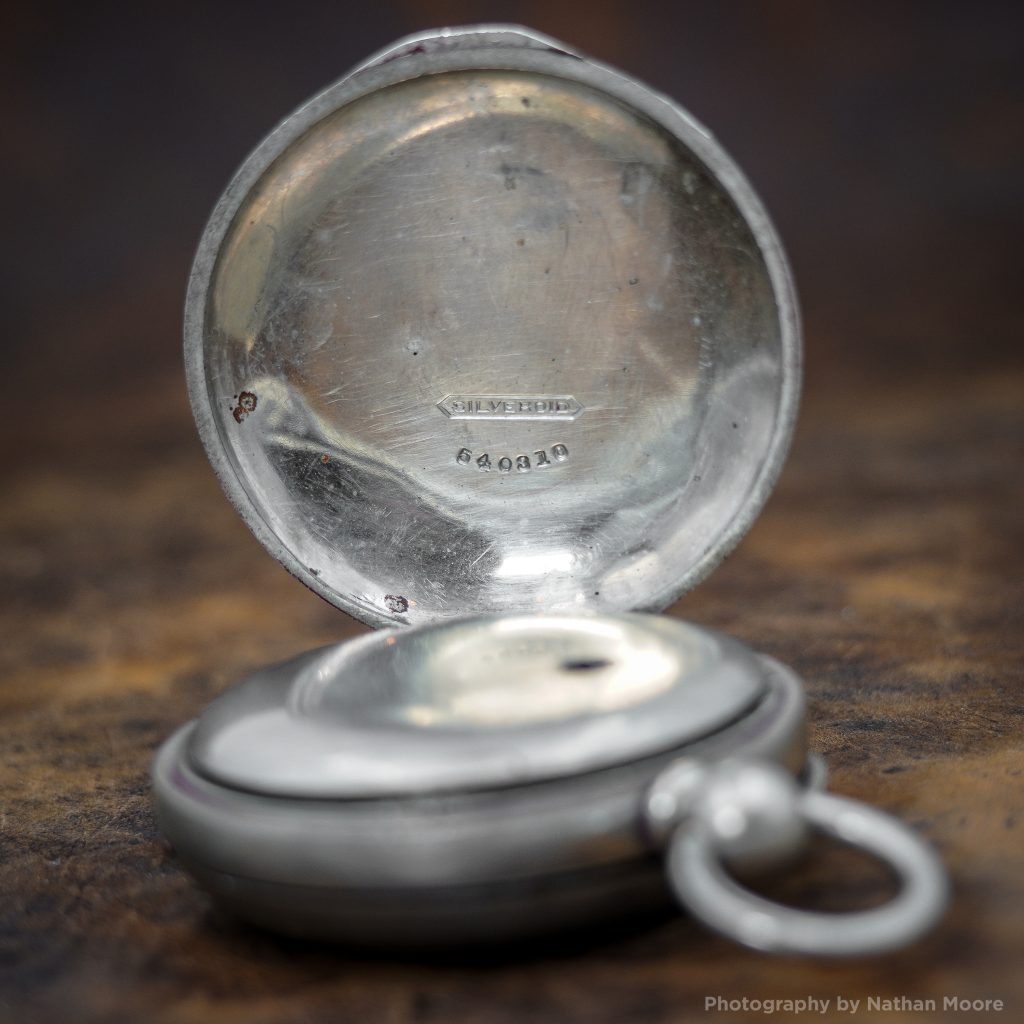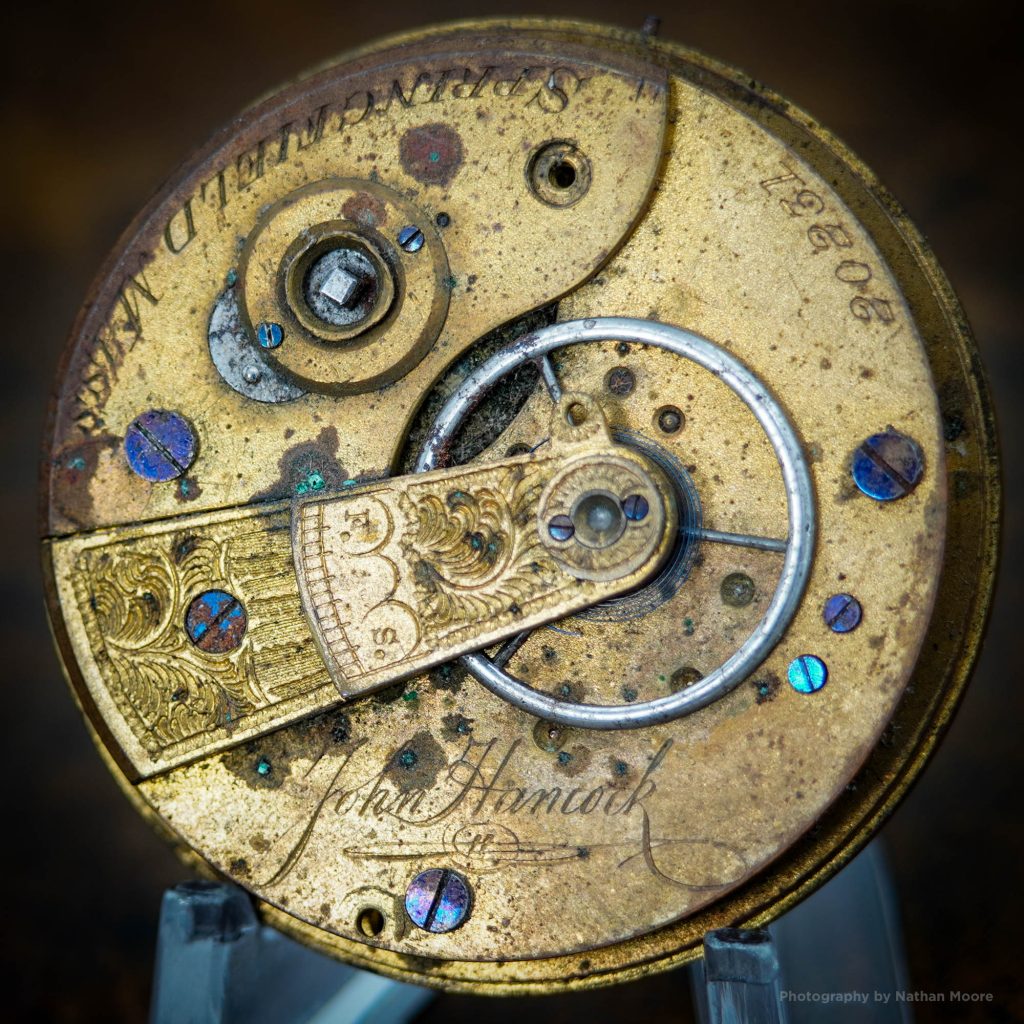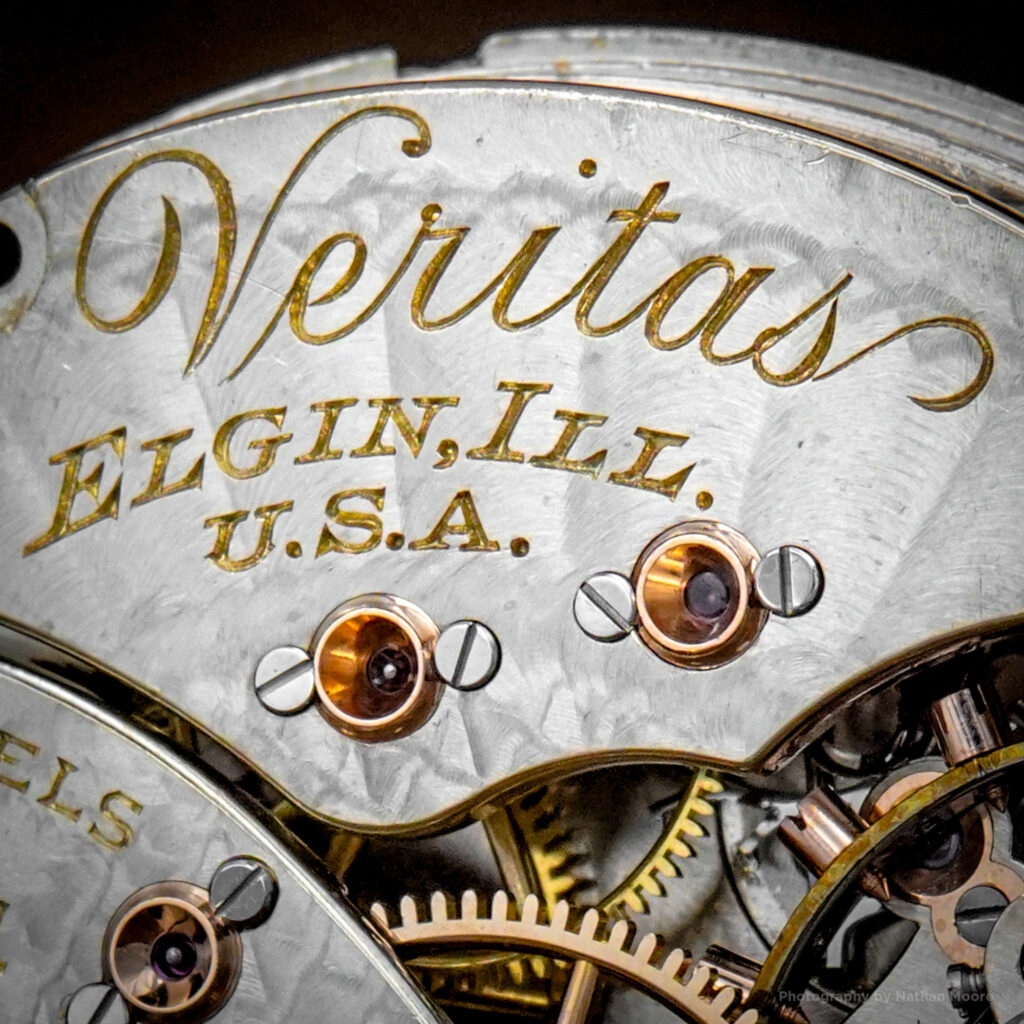Nickel Alloy Pocket Watch Cases: Silveroid, Silverode, Oresilver, Silverine, and Others

Most American watch case manufacturers experimented with various methods to market cases that were more durable and less expensive than precious metals while maintaining a similar appearance.
One of the most notable trends of the 1800s was the rise in popularity of nickel alloy watch cases that closely resembled silver. Almost every major watch case factory created its own marketable name for the nickel material used for these “new metal” cases. New case types, like the screw-back-and-bezel case, also benefited from the more durable metals offered by the nickel alloy material.
Nickel alloy cases were not a new concept when they became popular in the United States. Watches had been sold in “German Silver” cases for decades before the introduction of Americanized market names, such as Silveroid, Silverode, Oresilver, and Silverine.
In the 1820s, Gebrüder Henniger (“The Henniger Brothers”) successfully commercialized Neusilber (German Silver), bringing global attention to the alternative silvery-white metal. The firm helped standardize the alloy recipe, utilizing 60% copper, 20% nickel, and 20% zinc.
Soon after, the watch industry began producing cases made from this new metal to offer an alternative to more expensive silver cases.

As the adoption of “German Silver” spread globally, several regions coined their terms for the nickel alloy. For example, “Nickel Silver” was used in many European countries, while “Argentan” was used in French-speaking regions.
In the 1880s, many American watch case factories developed specialized terms for the nickel alloy cases offered to the market. These names are found on countless American watch cases, typically known for their durability and longevity. Because these cases do not contain any precious metals, most have survived to the modern day.
List of American Nickel Alloy Names and Associated Case Companies
Silverore
Manufacturer: Fahys Watch Case Company
Trademarked: No
Introduced: 1885
Era: c.1885-c.1887
Note: “Silverore” was adapted to “Oresilver” around 1887.
Oresilver
Manufacturer: Fahys Watch Case Company
Trademarked: Yes
Introduced: 1887
Era: c.1887-1915+
Silveroid
Manufacturer: Keystone Watch Case Company
Trademarked: No
Introduced: April 1886
Note: The term “silveroid” was used for alloy tableware as early as 1878.
Era: 1886-1917+
Nickeloid
Manufacturer: Keystone Watch Case Company
Trademarked: No
Introduced: 1920s
Era: c.1925+
Silverode
Manufacturer: H. Muhrs Sons and Philadelphia Watch Case Company
Trademarked: No
Introduced: c.1892 (Earliest Known Advertisement)
Era: c.1892-1897 (Muhr), 1898-1915+ (Philadelphia)
Silverine
Manufacturer: Dueber Watch Case Mfg. Co.
Trademarked: Yes
Introduced: April 1884
Era: 1884-1923+
Silveride
Manufacturer: Unknown (Possibly the Blauer Watch Case Company)
Trademarked: No
Introduced: c.1880s
Era: c.1880s
Note: Some “Silveride” cases are attributed to the Dennison Watch Case Company.
Alaska Metal
Manufacturer: Illinois Watch Case Co.
Trademarked: No
Introduced: Unknown
Special Market: Sears, Roebuck & Co.
Era: c1890s-1900s
Alaska Silver
Manufacturer: Philadelphia Watch Case Co.
Trademarked: No
Introduced: Unknown
Special Market: Sears, Roebuck & Co.
Era: c1890s-1900s
Silvaloy
Manufacturer: Fahys Watch Case Co.
Trademarked: No
Introduced: c.1905
Special Market: South Bend Watch Co.
Era: c.1905+
Some case factories, such as Crescent, Star, and Wadsworth, manufactured nickel alloy cases without notable trade names. These cases typically feature the company name without an indication of metal type (like Crescent) or will simply include “Nickel” or “Nickel Silver.”



